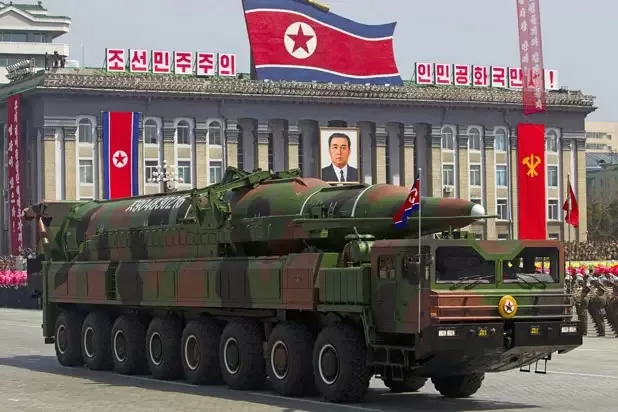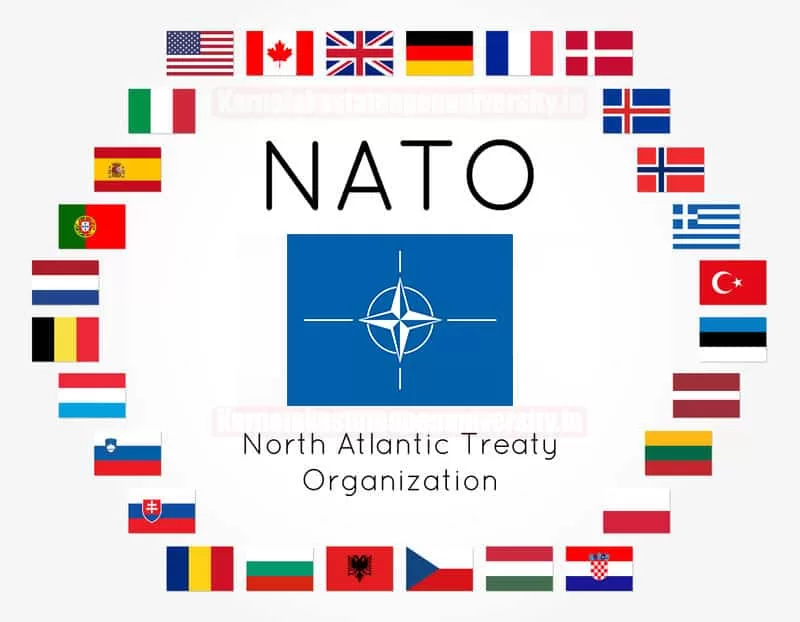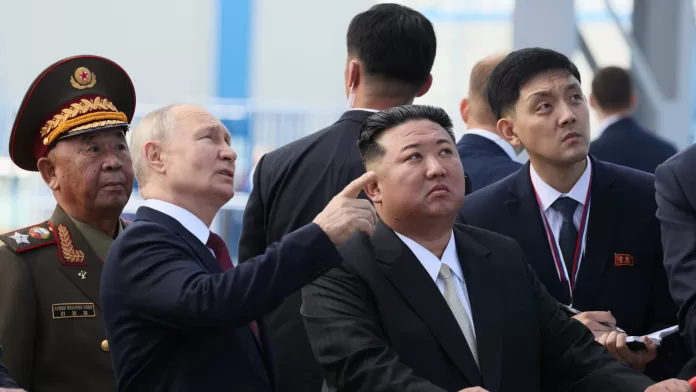Relations between Russia and North Korea have a long history. Both countries are neighbours; they share a border along the lower Tumen River, which is 17 kilometres long. When World War II ended, Korea, which had been a Japanese colony for 35 years, was liberated and then divided by the Soviet Union and US at the 38th parallel into two occupation zones. After political attempts for an independent and unified Korea stalled, each zone formed its own government in 1948.
Because of Seoul’s persecution of communists, in 1950 North Korea invaded South Korea. Referring to that event the UNSC – in the absence of the Soviet Union (at the time, China as a permanent member of the United Nations Security Council was represented by Taipei (Republic of China) not Beijing (People’s Republic of China). This prompted the Soviet Union’s boycott of the UN and absence from the UNSC.) – the UNSC denounced the attack and recommended countries to repel the North Korean army, under a United Nations command. Those UN forces comprised 21 countries, with the US providing around 90% of military personnel. The combat ended on 27 July 1953 when the Korean Armistice Agreement was signed, allowing the exchange of prisoners and the creation of the Korean Demilitarized Zone. The reason underlying the Armistice was that in reality defeat was staring at the face of the UN/US forces — as happened later in Vietnam and Afghanistan.

During the ensuing Cold War era the Soviet Union provided important help to North Korea. In 1961 the DPRK-Soviet Union Treaty of Friendship, Cooperation and Mutual Assistance underpinned cooperation during the Cold War was signed between the two countries. Moscow under Mikhail Gorbachev began to reduce aid to the North after 1985 in favour of reconciliation with South Korea.
Kim II Sung visited the USSR five times, with the last time being in 1986 during the early Gorbachev era. After the dissolution of the USSR, the new Russian government first refused to provide support for North Korea, favouring South Korea instead.
With the coming to power of President Putin things changed again. In February 2000 a new Treaty on Friendship, Good-Neighbourly Relations and Cooperation was signed between Russia and North Korea. In July 2000 President Putin visited North Korea and a joint declaration was signed.
Over the years, Russian FM Lavrov and other Russian members of govt visited North Korea. What really brought a hitch into the relations between the two countries were North Korean nuclear tests in 2006 and 2009. In 2006 Russia supported United Nations Security Council Resolution 1695, condemning the 2006 North Korean missile test. In October 2006, Russia also voted for Resolution 1718 imposing an embargo on technologies supporting missile and nuclear programs, as well as luxury goods. In June 2009 after the next nuclear tests in North Korea, President Dmitry Medvedev supported more intense sanctions.
Thus, when Russian President Vladimir Putin made a two-day visit to the Democratic People’s Republic of North Korea on July 19, 2024 another change in the relations took place and was commented upon widely in the world. Putin and Kim Jong Un signed a new Comprehensive Strategic Partnership Treaty complete with military ties, defence pledge as well as economic cooperation and environmental improvement that included cooperation in the nuclear field, this constituted a decisive change. It certainly was considered by the West a provocation and has resulted in loud denouncements of the new partnership and its possible fall-out.
How do we understand the change of mind?
One reason for the change is certainly the war in Ukraine in which North Korea has supported staunchly Russia – with or without providing weapons. Russia knows its friends and decided to strengthen relations in the light of this support.
Secondly, both Russia and North Korea have been living under economic, trade and technological sanctions. In both cases time has shown that sanctions don’t work and should be dropped. North Korea despite all the sanctions after the nuclear tests 2006 launched further tests in 2009. Russia has been under sanctions since 2014 and under more sanctions since 2022 with the result that Russian economy is thriving and growing faster than the rest of Europe.
That shows that sanctions don’t work, they are destructive and countries cornered by them try to hit back which creates more violence. That is why Russia and China say more sanctions will not help and want such measures to be ceased. They proposed some sanctions be lifted already in December 2019 at the UN, but had never put their draft resolution to a vote, obviously because there was no chance of success. Instead it can be expected that both countries will help each other to outwit the sanctions imposed on them.

But there is another, much more important reason for Putin’s visit. In an article that he was published on the eve of the visit Putin wrote: “We will develop alternative mechanisms of trade and mutual settlements that are not controlled by the West, and jointly resist illegitimate unilateral restrictions and at the same time – we will build an architecture of equal and indivisible security in Eurasia.”
One of the core disagreements between Russia and the western powers is the idea of security. While the western world relies on a security network that is based on US hegemony and deterrence, including nuclear deterrence against perceived enemies, Russia states that security is indivisible.
That means that when I deter my (real or perceived) enemies with weapons they will feel insecure and start developing more and more lethal weapons which starts an arms race spiral.
But the world is changing towards a multipolar world where countries are respecting each other’s security, economic and political concerns and working together as equals to achieve this. Asia with China and Russia seems to be the centre of it. Shanghai Cooperation Organization, BRICS and Collective Security Treaty Organization are vehicles to promote this idea.
In February 2024 Russian FM Lavrov said
“Together with our allies, we are strengthening the potential of the CSTO as a key regional defence structure responsible for ensuring the security of the organization’s member states and maintaining stability in Eurasia. The task of creating a new continental security architecture in the Eurasian space is overdue.
While the international community contemplates the scope and meaning of the mutual defence clause, the new treaty between Russia and North Korea serves to create the basis of long-term cooperation across military, economic, socio-cultural, and political aspects of the relationship, including in a number of sanctioned areas such as military and technology cooperation.
A strong theme throughout the treaty focuses on the collective efforts to resist coercive measures and promote a multipolar world order.
Therefore, one major goal of President Putin’s visit to North Korea and the conclusion of the partnership treaty was to bring North Korea out of the cold and into the developing network of Eurasian security and economic and political cooperation thus re-integrating them into the Eurasian community. While there might be still major hick-ups on the way a first step has been done.





